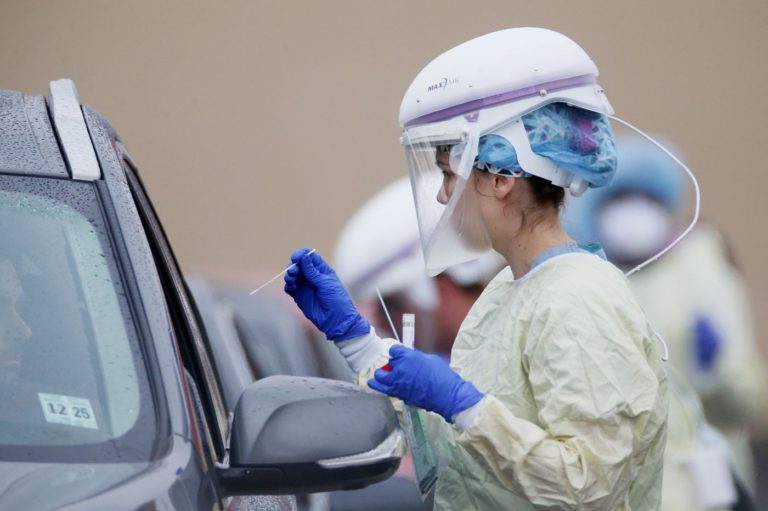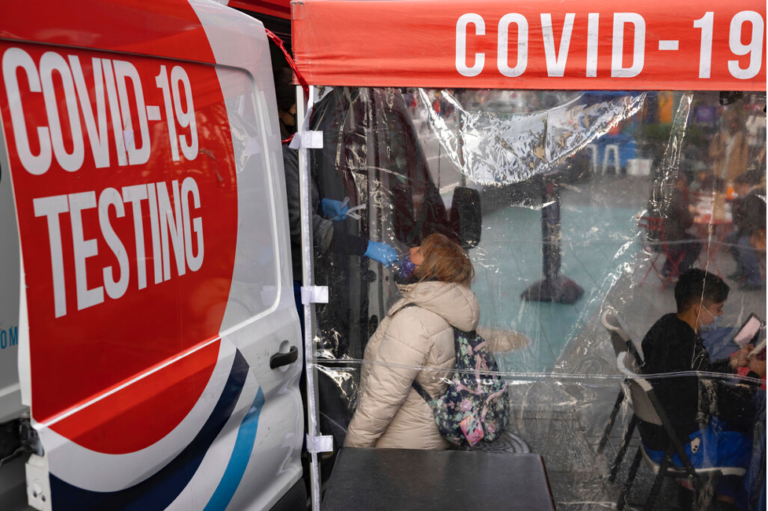Image created by Cassi Niedziela.
Africa is a continent teeming with life and diversity, but it is still grappling with the negative consequences of colonization. One of these consequences is that many of the health systems across the continent are not as developed as they could be. Many countries’ governments, as well as external actors, are actively working to strengthen health systems across Africa, but the threat of the COVID-19 pandemic shakes the existing health infrastructure even more.
At the time of writing, the entire African continent has 3,725 confirmed cases of COVID-19. South Africa has been the hardest hit with a total of at least 1,200 cases. To combat the spread of the virus, the South African government initiated a three-week lockdown of the country. Algeria has the second-highest number of cases. The West African countries of Burkina Faso, Côte d’Ivoire, Ghana, and Senegal are next on the list of highest confirmed cases.
While each country in Africa has different health system needs, focusing on Ghana in particular will shed light on general preparedness and response measures that other countries should take as well. To learn more about Ghana’s approach, I spoke with Justice Baah, the Monitoring, Evaluation, Accountability, and Learning Officer at the Ghana Coalition of NGOs in Health, which is based in Accra, Ghana but works with NGOs all over the country.
Baah noted that many precautions are already in place to slow the spread of the virus, including: the closure of Ghana’s land, air, and sea borders to human traffic; the closure of all public and private schools; and the suspension of public gatherings such as religious services. Ghanaians are also being advised to practice social distancing and frequent hand washing. Baah pointed out that the public’s trust in the healthcare system is currently low due to the limited number of testing centers in the country, as well as the spread of misinformation. Additionally, only a few health facilities in Ghana can properly isolate and treat infected individuals, so a surge in the number of cases would overwhelm the existing facilities.
Another concern is what to do about health threats such as malaria, tuberculosis, and other acute and chronic conditions. Baah said that “the attention of the entire nation and the health system is on the fight against coronavirus. Although other health issues are addressed in all health facilities around the country, public attention on these other health initiatives is very low.” This is concerning for a health system that is already strained to treat patients before the threats posed by COVID-19.
Nana Kofi Quakyi, a doctoral student at the NYU School of Global Public Health discussed actions that should be taken in Ghana to reduce the community transmission of the virus on Citi TV. Quakyi stated that the Ghanaian healthcare system is “simply not equipped to deal with a drastic escalation of critical cases,” which is why the country needs to focus on avoiding community transmission of the virus. However, social distancing practices such as working from home are not realistic for a lot of people in Ghana.
It is extremely difficult to tell people who earn daily wages in the informal sector (i.e. street vendors, hawkers, and domestic workers), in markets, or as tro-tro (taxi) drivers to stay home from work because these wages support their families. To combat this, Quakyi suggests a government program to mitigate the loss of income that many individuals will face. This program will hopefully incentivize people to stay home and stop the spread of the coronavirus. Of course, this program will be expensive, but the cost of a recession and the cost of lives lost if community transmission continues will be far greater.
Pictured: A bustling street in Accra, Ghana with street vendors, taxi drivers, and other small businesses that will face economic hardships if their loss of income is not mitigated.
Photo courtesy of festicket.com.
Ghana should also boost and prioritize health spending across the country in urban centers like Accra, as well as in the more rural regions that already have less access to healthcare facilities. As Quakyi puts it, all facilities should be prepared for the eventuality of community transmission. As a means to slow the spread of COVID-19, Justice Baah suggested the option of a partial lockdown of the cities most affected in Ghana. In fact, Ghanaian president Nana Akufo Addo recently announced that the two largest cities in Ghana, Accra and Kumasi, will undergo lockdowns in which people will only be allowed out of their homes for essential services. This is a step in the right direction, but a full lockdown of the entire country may be necessary, even if the threat does not yet appear to warrant it. For all countries confronting the threats of this pandemic, it is better to overreact than underreact.
Lastly, widespread communications campaigns are absolutely essential. There is an abundance of misinformation being spread on social media and messaging platforms such as WhatsApp that is targeting people’s fears and causing them to take actions that may be harmful to themselves. There is also a lack of proper risk perception, which is why there needs to be a targeted campaign to spread awareness of who is most at risk, the benefits of social distancing, and what individuals can do to protect themselves.
Overall, Ghana is taking precautions to slow the spread of COVID-19, but more needs to be done, even if the measures seem too extreme. These new measures must also be accompanied by programs to mitigate the loss of income for all people in the country. Other countries in the region should follow suit, especially since viruses do not respect the arbitrary lines of a nation’s border. If the proper actions are taken to slow and stop the spread of the coronavirus, Ghana will be able to sufficiently combat this pandemic, but the actions need to be taken without delay.


